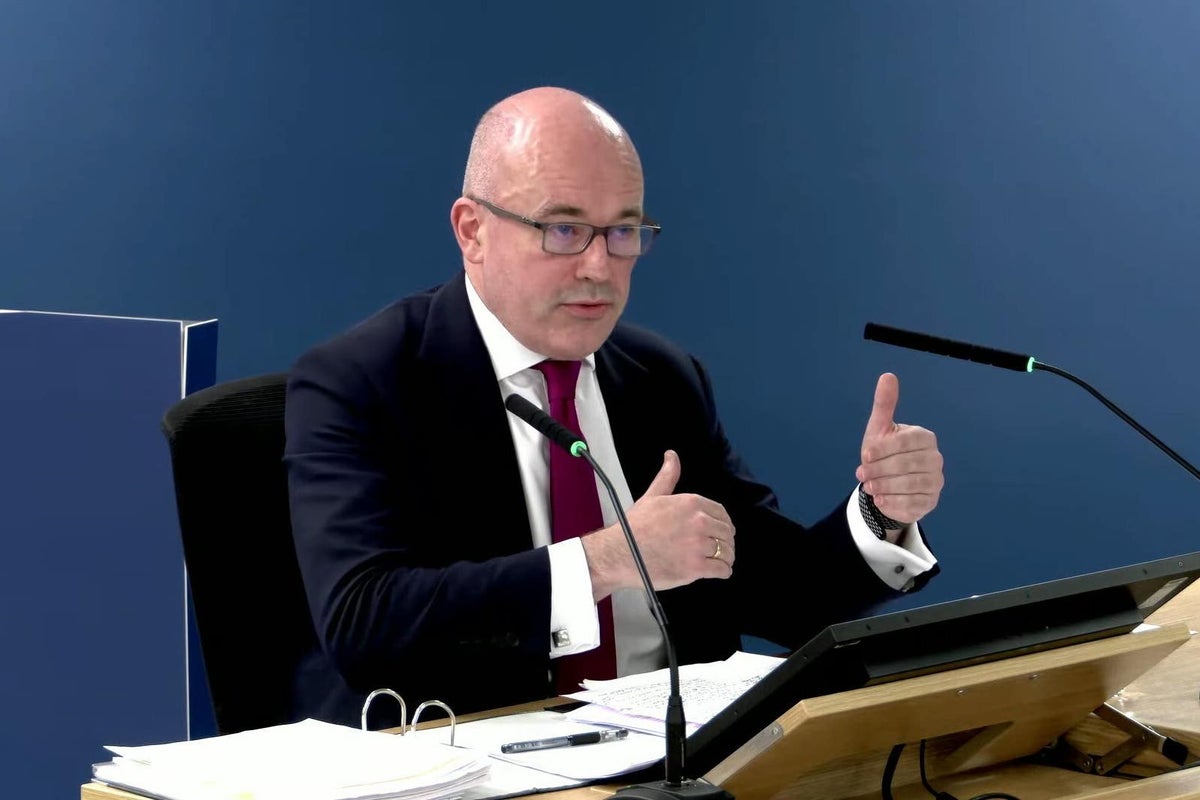
It was an “extraordinary dereliction of duty” for the Department for Education (DfE) not to plan for Covid school closures earlier in March 2020, an academy boss has said.
Sir Jon Coles, chief executive of United Learning Trust and former director general for schools at the DfE, told the UK Covid-19 Inquiry on Monday he “almost fell from [his] chair” when he read former education secretary Sir Gavin Williamson’s statement.
Sir Jon told the inquiry his multi-academy trust was starting to communicate with schools from March 10 or 11 that it looked like schools were going to close in the near future.
The trust had started running webinars for schools on how to provide remote education, he said, alongside providing advice on things like safeguarding and HR anticipating the potential changes.
In a statement to the inquiry given in 2023, Sir Gavin said he had not asked DfE officials to prepare an assessment on the impact of school closures in early 2020, as the advice at the time “was not recommending closures” and Number 10 had not commissioned it.
“I’ve read in Gavin Williamson’s statement that he says that the department hasn’t done any planning by this point for school closure because their priority was keeping schools open,” Sir Jon said.
“I almost fell from my chair when I read that. That’s an extraordinary dereliction of duty by the leadership of the department, both political and civil service.
“It was perfectly clear to me, as just somebody who was running schools, that there was a high likelihood that schools would have to close, and we were planning for that, whilst also, of course, doing everything we could to keep schools open.
“But we had received no direction, as apparently the Department for Education was waiting for a direction from number 10 before it started its planning work.
“We had received no direction, and we got on with planning, because that’s obviously the right thing to do in the circumstances.”
Opening submissions to the inquiry last week heard reference to evidence that the DfE in England had not begun planning for school closures until after March 16 2020, a detail described by inquiry counsel Clair Dobbin KC as “a cause for alarm”.
Sir Gavin’s evidence describes a “discombobulating 24-hour sea change” from keeping schools open on March 16 to talking about closing them on March 17, and an announcement to shut them made the following day.
Referring to differences in Sir Gavin and then-prime minister Boris Johnson’s evidence, Ms Dobbin said it was “significant that there should be any dispute about whether planning for so seismic an event existed”.
Sir Gavin wrote in his statement the DfE was not asked to assess the impact of school closures on a wider socio-economic basis, and did not have the time to after discussions about closing schools began.
However, he said he proposed to the prime minister that vulnerable children and children of key workers should be allowed to continue to go into school.
The inquiry continues.
